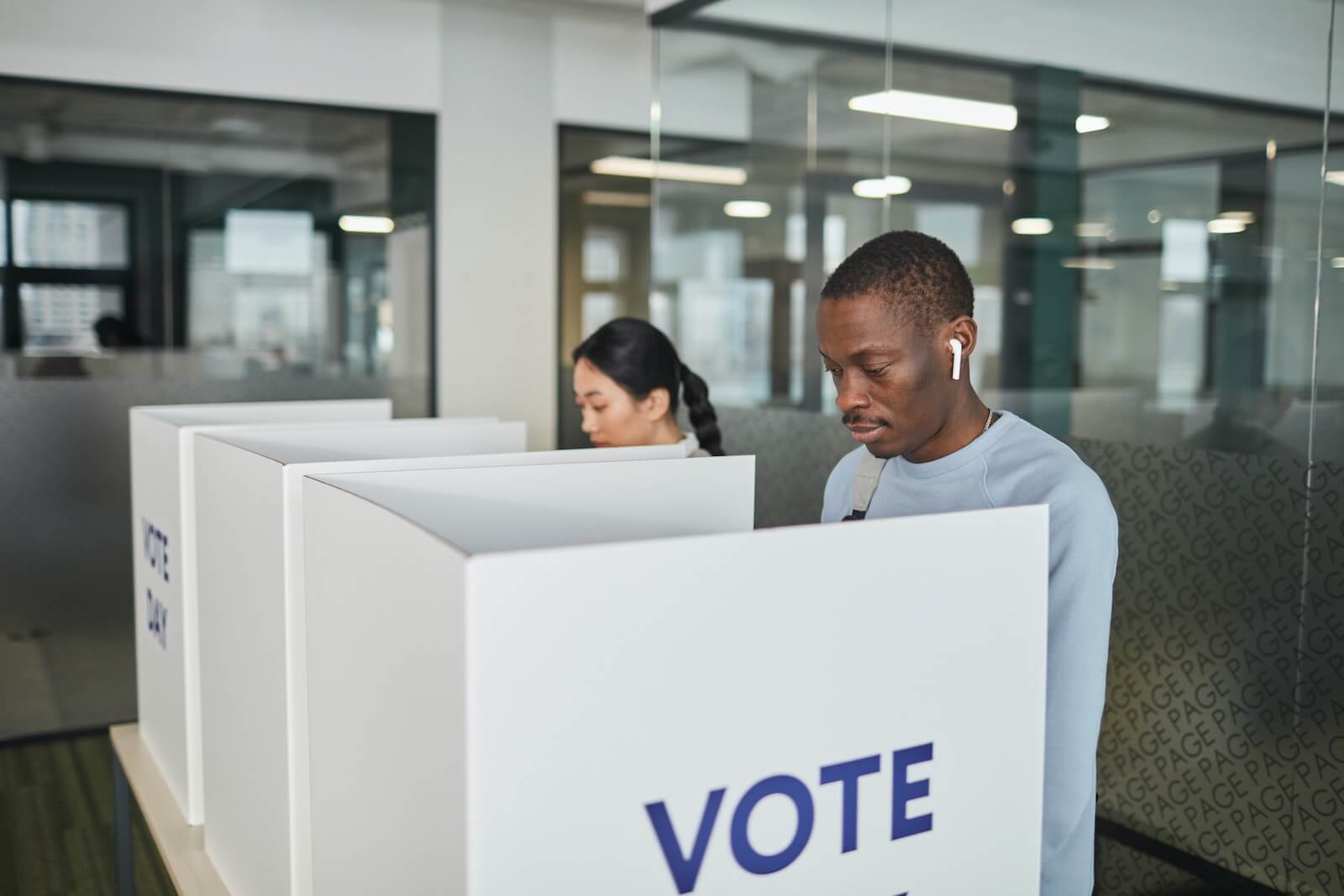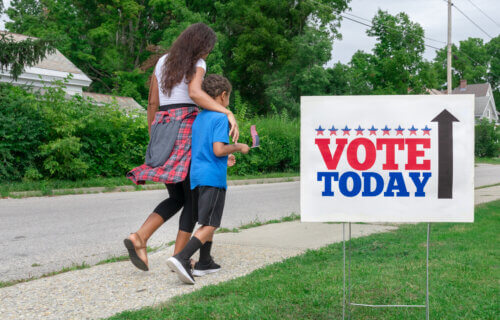BOCA RATON, Fla. — From facial features to mannerisms, children are reflections of their parents in many ways. Now, new research out of Florida reports adolescents often pick up voting habits and political outlooks from their moms and dads as well. Scientists at Florida Atlantic University report political apathy among parents predicted increases in political apathy among certain children one year later.
Democracies, in theory at least, are intended to be run by the people for the people, but many citizens living in democratic countries all over the world are increasingly feeling like their voices aren’t being heard, or put another way, that their votes don’t really matter. The end result is political apathy, also known as political alienation — feelings of political powerlessness, separation, disaffection, and a general indifference toward all politics and political institutions.
One of the most common behaviors seen among the politically alienated is a flat-out refusal to vote or participate in political activities. Unfortunately, young adults and adolescents appear particularly susceptible to political apathy; the youngest voters have the lowest election participation rates across numerous nations in both Europe and North America.
While this trend is a complex one, no doubt influenced by a number of different factors, study authors chose to focus on one of the most prevalent: parent attitudes in relation to politics.

Ultimately, researchers report that political disaffection does indeed appear to spread from parents to their children. More specifically, parent political alienation predicted increases in adolescent child political alienation one year later among kids who described relationships with parents as warm. Importantly, however, the same did not hold true among adolescents describing relationships with parents as distant.
So, study authors say that in households where parents and adolescents are close, parents transmit political apathy to their adolescent children. This trend may be contributing mightily to low political participation among young voters.
To conduct this research, study authors assessed 571 German adolescents (314 girls, 257 boys), as well as their parents (both mom and dad). Each family completed questionnaires describing their own political alienation at two points in time, approximately one year apart. Additionally, the kids completed surveys describing their perceptions of warmth in relationships with parents. At the beginning of the study, adolescents were in grades six, eight, and 10.
Notably, moms and dads did not seem to differ regarding influence over their kids. Both were found to be equally important in shaping adolescent attitudes about politics. Interestingly, political influence appears to be a one-way street: adolescents did not contribute to the political alienation of their parents.
These findings are important, the research team explains, because they highlight a potentially promising new avenue of raising political participation among young voters: target the political attitudes of those with whom they are close (parents).
“The logic is straightforward,” says Brett Laursen, Ph.D., senior author and a psychology professor in FAU’s Charles E. Schmidt College of Science, in a university release. “Children who are close to their parents are more likely to identify with them and are more receptive to messages from them about politics. We listen to those we like, we engage them in dialogue, we identify with them and we emulate their behaviors.”

Political alienation takes root due to distrust and a lack of confidence in political systems and political figures. Political disaffection can be a serious challenge for any democracy as politically alienated citizens tend not to vote. Consequently, when elections are decided by a small portion of the electorate, disaffection grows, further driving down future voter turnout in a vicious cycle. Moreover, it’s hardly easy to change personal political views. Plenty of politically disaffected young adults continue to refrain from voting and politics in general as they get older.
These findings also serve as a reminder that parental influence can be a double-edged sword.
“The results of our study matter because despite the rising importance of friends and peers, many forms of adolescent behavior remain highly susceptible to parent influence,” Prof. Laursen concludes. “We like to think of parents as positive socialization agents, and typically they are. But bad habits and bad attitudes also can spread from parents to children, and parents should be alert to this possibility.”
“Some parents underestimate their importance. Children are watching and listening, even during late adolescence. They take cues from parents, particularly in families that are close-knit and warm. Attitudes toward politics are just another example of the many ways that parents exert a profound and lasting impact on the lives of their children.”
The study is published in the Journal of Family Psychology.
You might also be interested in:
- American politics really are making people feel sick, study reveals
- Political polarization in U.S. may be reaching an irreversible ‘tipping point’
- ‘Deep State’ and ‘Trump lies’ among common search terms as voters lose trust in U.S. government




